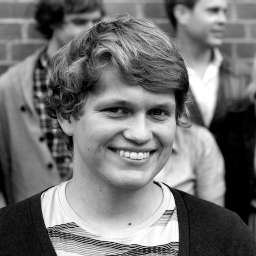Premiered in 1906, Carl Nielsen’s Maskarade does not get played much outside of his native Denmark. However, it is one of the 20 most performed operas at the Royal Danish Opera, which says something about Nielsen’s popularity at home. In this revival of Kasper Holten’s 2006 production, Nielsen’s comic masterpiece is lovingly brought to life with excellent singing and a pervasive sense of sheer fun.
Maskarade is based on a 1724 play of the same name written by the Dano-Norwegian playwright Ludvig Holberg. The story centres on Leander, who gets engaged to a girl he doesn’t know at a masquerade ball, much to the chagrin of his father Jeronimus. Leander is already promised to the daughter of Leonard, who in turn can report that his daughter has also broken her promise. Complications ensue, but in the end, everything is resolved and the young livers live happily, if not ever after, then at least for a little while.
Holberg’s Mascarade was written as a gently satirical commentary of the then-common practice of arranging masked balls in the Royal Theatre on non-performance nights. Many were of the opinion that these masquerades, where different classes could mingle freely, encouraged vice and immoral behaviour. Maskarade’s librettist, Vilhelm Andersen, saw Holberg’s comedies as emblematic of the Scandinavian comedic tradition’s connection to Greek tragedy, and he explored this in his 1904 treatise The Bacchus Procession in the Nordic Countries. It was put into practice in Maskarade, with several explicit refereces to Greco-Roman mythology.
In his production, Holten seems to want to emphasise the spirit of the original Holberg play, much to the detriment of Andersen’s ideological additions. Holten’s production is mostly concerned with being amusing, poking gentle fun at modern Danish society, and seems disinterested in Andersen’s ancient references. This results in awkward cuts, especially in the Act III, where the song of the Tutor is absent, and the monologue of the Masquerade Master is cut in half, compromising the masquerade’s function as a haven of equality and symbolic immortality by simply not addressing it.
Still, in spite of the mess being made of the third act in particular, Holten’s production has much to recommend it. There is a sense of fun, both in the music and the direction, and the characters become all too recognisable. Magdelone is a bored housewife who, wine glass in hand, is dreaming up a more exciting life filled with dancing and shirtless Spaniards. Leander is very much your stereotypical, self-absorbed twenty-something millennial, ceaselessly taking selfies.
Despite Act III being problematic in this production, Holten still has some ingenious ideas for it. He sees it as a dream factory, where the characters can become whatever they desire; Leander and Leonora see themselves as responsible adults with a house in the country and children; their servants, Henrik and Pernille, dream themselves as rich cruise passengers. The masquerade represents a place where people can completely be themselves and live out their fantasies. Throughout the production, when the characters are interacting with each other, they wear masks, only taking them off when they are being truly sincere. At the masquerade, the characters don’t wear masks and can, paradoxically, fully be themselves. By dressing up and inhabiting another character, they can lose their everyday façade.
The singing was uniformly good, essential for an ensemble piece like Maskarade. Henning von Schulman was a delightful Henrik, with a powerful voice and a great talent for comic acting, although he also managed to bring the right amount of gravity to the more serious parts of the role. Gert Henning-Jensen was a wonderfully ardent and youthful Leander, his bright voice ringing out in his top register. Petri Lindroos’ voice was perhaps half a size too small for Jeronimus, but his Act I aria was beautifully sung, and his drunken acting in Act III was utterly enjoyable. Randi Stene slid into the role of bored housewife with apparent ease, and her first act aria was a lot of fun, both to watch and to listen to. As Leonora, Sophie Elkjær Jensen was lovely, although her bright voice had a tendency to turn shrill at the top. Tuva Semmingsen was a seductive Pernille, clearly having a lot of fun with von Schulman’s Henrik.
Per Otto Johansson led the Danish Royal Orchestra in a spirited rendition of Nielsen’s sparkling score. They seemed to get slightly too carried away at times, and the playing could generally have been ever so slightly softer. Petri Lindroos, especially, was drowned out by the orchestra. The Act I finale could have been a touch faster, but in general, Johansson chose judicious tempi, the only other exception being the prelude to Act II, taken shockingly quickly.
Even though it doesn’t delve deep enough into the ideological underpinnings of the opera, Kasper Holten’s production of Nielsen’s Maskarade still provides a few hours of pure fun. When it’s as entertainingly sung and played as this revival, its faults are easy to overlook.




